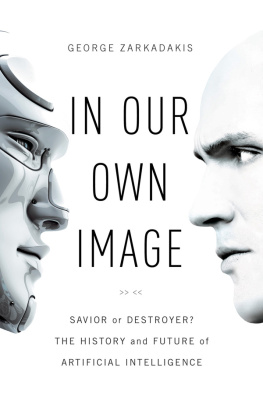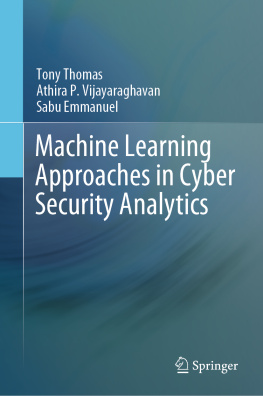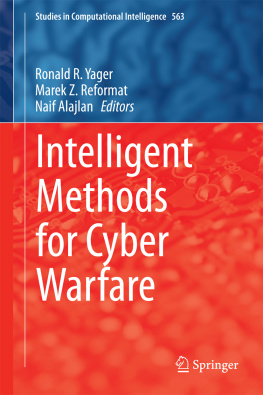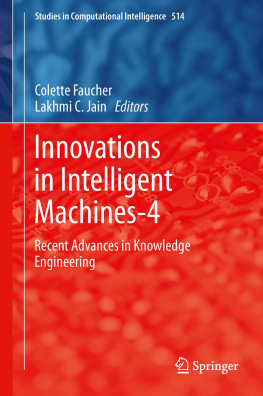George Zarkadakis - Cyber Republic: Reinventing Democracy in the Age of Intelligent Machines
Here you can read online George Zarkadakis - Cyber Republic: Reinventing Democracy in the Age of Intelligent Machines full text of the book (entire story) in english for free. Download pdf and epub, get meaning, cover and reviews about this ebook. year: 2020, publisher: MIT Press, genre: Politics. Description of the work, (preface) as well as reviews are available. Best literature library LitArk.com created for fans of good reading and offers a wide selection of genres:
Romance novel
Science fiction
Adventure
Detective
Science
History
Home and family
Prose
Art
Politics
Computer
Non-fiction
Religion
Business
Children
Humor
Choose a favorite category and find really read worthwhile books. Enjoy immersion in the world of imagination, feel the emotions of the characters or learn something new for yourself, make an fascinating discovery.

- Book:Cyber Republic: Reinventing Democracy in the Age of Intelligent Machines
- Author:
- Publisher:MIT Press
- Genre:
- Year:2020
- Rating:5 / 5
- Favourites:Add to favourites
- Your mark:
- 100
- 1
- 2
- 3
- 4
- 5
Cyber Republic: Reinventing Democracy in the Age of Intelligent Machines: summary, description and annotation
We offer to read an annotation, description, summary or preface (depends on what the author of the book "Cyber Republic: Reinventing Democracy in the Age of Intelligent Machines" wrote himself). If you haven't found the necessary information about the book — write in the comments, we will try to find it.
Cyber Republic: Reinventing Democracy in the Age of Intelligent Machines — read online for free the complete book (whole text) full work
Below is the text of the book, divided by pages. System saving the place of the last page read, allows you to conveniently read the book "Cyber Republic: Reinventing Democracy in the Age of Intelligent Machines" online for free, without having to search again every time where you left off. Put a bookmark, and you can go to the page where you finished reading at any time.
Font size:
Interval:
Bookmark:
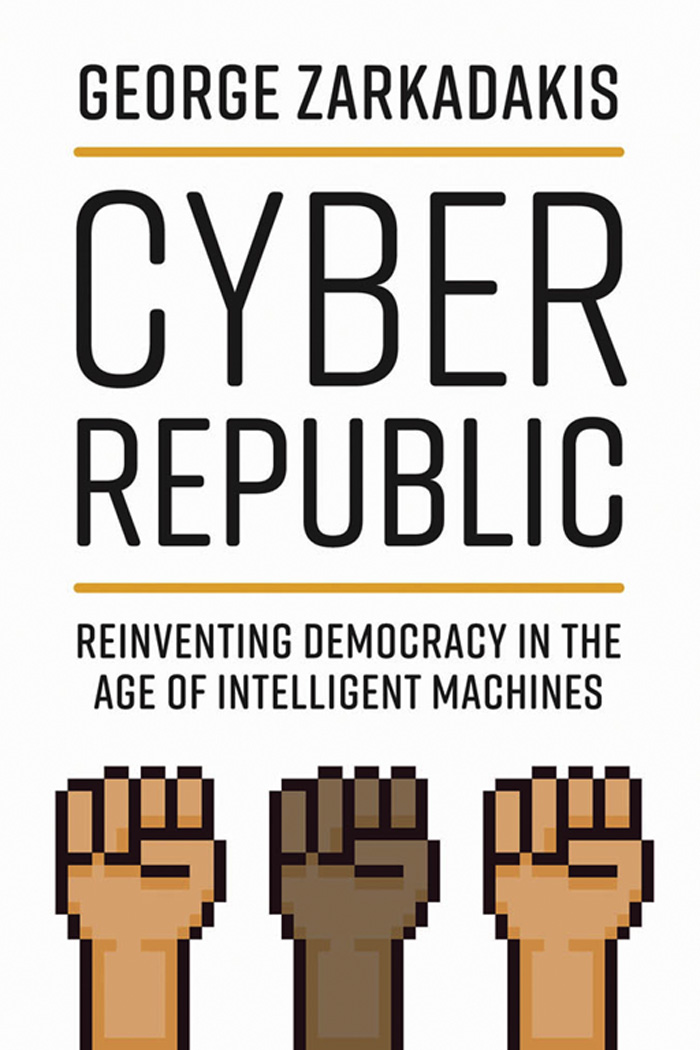
George Zarkadakis
Foreword by Don Tapscott
The MIT Press Cambridge, Massachusetts London, England
2020 George Zarkadakis
All rights reserved. No part of this book may be reproduced in any form by any electronic or mechanical means (including photocopying, recording, or information storage and retrieval) without permission in writing from the publisher.
This book was set in ITC Stone and Avenir by New Best-set Typesetters Ltd.
Library of Congress Cataloging-in-Publication Data
Names: Zarkadaks, Girgos, 1964 author ; foreword by Don Tapscott.
Title: Cyber republic : reinventing democracy in the age of intelligent machines / George Zarkadakis.
Description: Cambridge, Massachussets : The MIT Press, [2020] | Includes bibliographical references and index.
Identifiers: LCCN 2020000400 | ISBN 9780262044318 (hardcover)
Subjects: LCSH: Information societyPolitical aspects. | Artificial intelligencePolitical aspects. | Political participationTechnological innovations. | Democracy.
Classification: LCC HM851 .Z36 2020 | DDC 303.48/3dc23
LC record available at https://lccn.loc.gov/2020000400
10 9 8 7 6 5 4 3 2 1
d_r0
To my parents, Constantine and Helena
There are those that look at things the way they are, and ask why? I dream of things that never were, and ask why not?
Robert F. Kennedy
Foreword by Don Tapscott
Don Tapscott
Writing the twentieth-anniversary edition of my 1994 book The Digital Economy was a sobering experience. The book was very positive about the promise of the Internet and, to be sure, the Net has brought about many great innovations.
But the book had a small section about The Dark Sidethings that could go wrong. Re-reading it 20 years later I was shocked to see that every danger I hypothesized had materialized.
Our privacy has been undermined. The digital economy has created a system of digital feudalism, wherein a tiny few have appropriated the largesse of this new era of prosperity. Data, the oil of the twenty-first century, is not owned by those who create it. Rather, its controlled by an increasingly centralized group of digital landlords, who collect, aggregate, and profit from the data that collectively constitutes our digital identities.
Exploiting our data has enabled them to achieve unprecedented wealth, while at the same the middle class and prosperity are stalled.
In 1994 I had hoped that the Internet would create new industries and jobsand it did for a while. But today technology is wiping out entire industries employment, and the imminent threat of structural employment is fueling unrest. Trucking, one of Canadas largest sources of employment, will likely be automated within a decade. Digitized networks enable outsourcing, offshoring, and the coordination of labor at a global scale. Within the second era of the digital ageone centered on blockchain technologies, machine learning (ML), artificial intelligence (AI), robotics, and the Internet of Things (IoT)many core functions of knowledge work, many companies and industries, are in jeopardy.
Yes, we see a new wave of entrepreneurism globally, but our regulations were designed for the industrial economy and hamper success.
The increased transparency enabled by the Internet has also revealed deep problems in society. Canada is learning the truth about the horrific history of our indigenous peoples who, in turn, now have tools to speak out and organize collective action. We also understand deeply how climate change threatens civilization on this planet and people, especially young people who will suffer most, and who are now organizing to reindustrialize the country and the world.
I had hoped the Internet would bring us together as societies and improve our democracies. But the opposite has occurred. Algorithms expose us solely to information and perspectives that confirm our biases. The upshot has been more fractured and divisive public discourse, and democratic institutions are eroding before our eyes as trust in politicians is at an all-time low. Populist rhetoric becomes more appealing in these conditions, and many are vulnerable to scapegoating and xenophobia. The upshot is that there is a crisis of legitimacy of liberal democracy.
To borrow from Paddy Chayefsky, people everywhere are mad as hell and not going to take it anymore. As such they have become vulnerable to populism, xenophobia, and scapegoating minority ethnic groups, races, and religions. Centrist parties are in rapid decline and extremist right-wing parties from Hungary and Poland to France and Germany are on the rise. Perhaps as unthinkable as the success of Donald Trump is the rise Bernie Sanders, an avowed socialist who has come in second to Joe Biden and the Democratic Party establishment in winning a democratic presidential nomination. The unfolding story is one of growing discontent, with the deepening economic crisis and the establishment that created it.
Conversely, the next era of the digital economy could bring an age of prosperity, with new networked models of global problem solving to realize such a dream. For the last 40 years weve seen the rise of mainframes, mini-computers, the PC, the Internet, mobility, the Web, the mobile web, social media, the cloud, and big data.
In this next era, new technologies are already infusing into everything and every business process. In addition to AI, ML, and IoT, we have predictive analytics, additive manufacturing, autonomous drones and vehicles, and precision medicine enabling entirely new types of enterprise. Foundational to these innovations is the technology underlying cryptocurrenciesblockchain.
To meet these new challenges, the time has come for every country to reimagine its social contractthe basic expectations among business, government, and civil society.
When countries evolved from an agrarian economy to an industrial one, we developed a new social contract for the timespublic education, a social safety net, securities legislation, and laws about pollution, crime, traffic, and workplace safetyand countless nongovernmental organizations have arisen to help solve problems.
It is time to update these agreements, create new institutions, and renew the expectations and responsibilities that citizens should have about society. Ive spent considerable time working on a framework for such a new social contract and have come to some pretty far-reaching conclusions.
We need new models of identity, moving away from the industrial-age system of stamps, seals, and signatures that we depend on to this day. We need to protect the security of personhood and dismantle the system of digital feudalism. Individuals should own and profit from the data they create. We need new laws for the operation of autonomous vehicles, robots, drones, and technology in our bodies.
Our basic expectations of work are shifting, but our systems designed to support workers have not. Gone are the days when workers might expect to do the same job or work in the same field for their whole careers. Students today are preparing for unprecedented lifelong learning, with the knowledge that technology will likely require them to reimagine their role in the workforce.
In the face of new models of work, we must update our educational institutions to prepare for this kind of lifelong learning and establish a universal basic income to support transition periods, providing a foundation for entrepreneurialism and investing in the potential of our populations.
Next pageFont size:
Interval:
Bookmark:
Similar books «Cyber Republic: Reinventing Democracy in the Age of Intelligent Machines»
Look at similar books to Cyber Republic: Reinventing Democracy in the Age of Intelligent Machines. We have selected literature similar in name and meaning in the hope of providing readers with more options to find new, interesting, not yet read works.
Discussion, reviews of the book Cyber Republic: Reinventing Democracy in the Age of Intelligent Machines and just readers' own opinions. Leave your comments, write what you think about the work, its meaning or the main characters. Specify what exactly you liked and what you didn't like, and why you think so.

